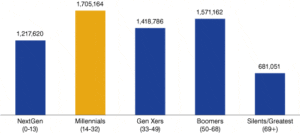 General: most of the number-crunching services are predicting that housing prices will be stable. This means they will increase, but at a slower rate than we have been seeing over the past three years.
General: most of the number-crunching services are predicting that housing prices will be stable. This means they will increase, but at a slower rate than we have been seeing over the past three years.
Deregulation will loosen mortgage requirements.
This is a positive for first-time buyers who are on the brink of purchasing. Some will be able to move their timelines up by borrowing with looser standards.We work carefully to help first-timers not take on more than they can handle.
The negative: loose lending brings risk-taking buyers into the market. This increases demand because this buyers are more reckless and will overpay for property. If this becomes a trend, those buying with loose standards could bring on another real estate boom-bust, like 2008. (Why deregulation is a bad idea.)
It is expected that mortgage rates will go up.
Foreign and cash buyers are leaving the market. Nationally, this is the trend. It will reduce demand and begin to level the playing field for people who are buying with mortgages.
Rents are leveling off. This will reduce demand, since fewer people will be buying in a hurry to flee rising rents. It also decreases demand for investors looking to make a killing on big rents. Less demand is good for our clients, the buyers.
 The millennials are getting on their feet, financially. From a seller’s point of view, this is good news because it increases demand. From our point of view it is a mixed bag. More buyer demand keeps prices up – that’s bad. But, we also look forward to working with people who have gotten through the recession and are ready to buy.
The millennials are getting on their feet, financially. From a seller’s point of view, this is good news because it increases demand. From our point of view it is a mixed bag. More buyer demand keeps prices up – that’s bad. But, we also look forward to working with people who have gotten through the recession and are ready to buy.
Housing market is fragmented.
Regionally: As you are aware, Metro Boston is a high real estate market (although not as high as some.) In many parts of the country, a median income qualifies you for a median-priced house, but not here.
By density: Urban prices have been rising faster than suburban prices. The pressure on small urban-sized properties is still high throughout Boston, Cambridge, Somerville, Brookline and near-in towns. Both millennials and empty-nest suburbanites are competing for two-bedroom urban and close-to-Boston venues. Prices on this kind of property will stay in demand. These prices will remain high. We are more likely to see a slower increase in prices in bigger homes farther from the cities, especially in places with limited public transportation.

Leave A Comment